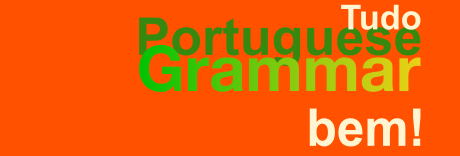
We’ve written about ACABAR de before — because it’s such a useful combination. When you place a de after acabar, it takes on the meaning of, to have just. ACABAR in Portuguese by itself means: to end, to end-up, to finish. Everyone gets these mixed-up (confundida) ~ That DE makes all the difference! Use ACABAR…
Read more...

using ACABAR with de | using ESTAR with com | past participles of verbs | the preterit tense of verbs SER and IR
Members Only

using para | the preposition por | using TER with que to express “to have to” | acabar ➜ to end up | tomar ➜ to take
Members Only

By combining ACABAR with “de” (acabar de) you immediately gain SUPERPOWERS. You’ll be able to say things like: I just arrived; She wound up buying that car, and more! The amazing thing about Portuguese is that you can shape-shift verbs just by adding connector words like “de” or, “a” for example.
Read more...

present indicativeacabareuacabovocê, ele, elaacabanósacabamosvocês, eles, elasacabam Complete conjugation.

expresssing “this” & “that”, “these” & “those” | the expression: já volto | expressions using dar | indefinite pronoun: todo | the preposition por | acabar ➜ to end up
Members Only

using ACABAR with de | expression: cá | the preposition de
Members Only

To say you’ve “just done (now) something” ➜ use acabar + de. It’s used almost always in the past tense. Using acabar without the de has the meaning, to end up.

RAMON Fala Marquinhos! If you want to sound like a Brazilian, say “Fala!” like you would say “hi”. MARCOS Acabou! Graças a Deus, acabou. ACABAR = to have just & to finish. In this context it translates to, “it’s over”. RAMON Mas aí, cara. Te deu a prova? He said te deu. What he really…
Members Only








